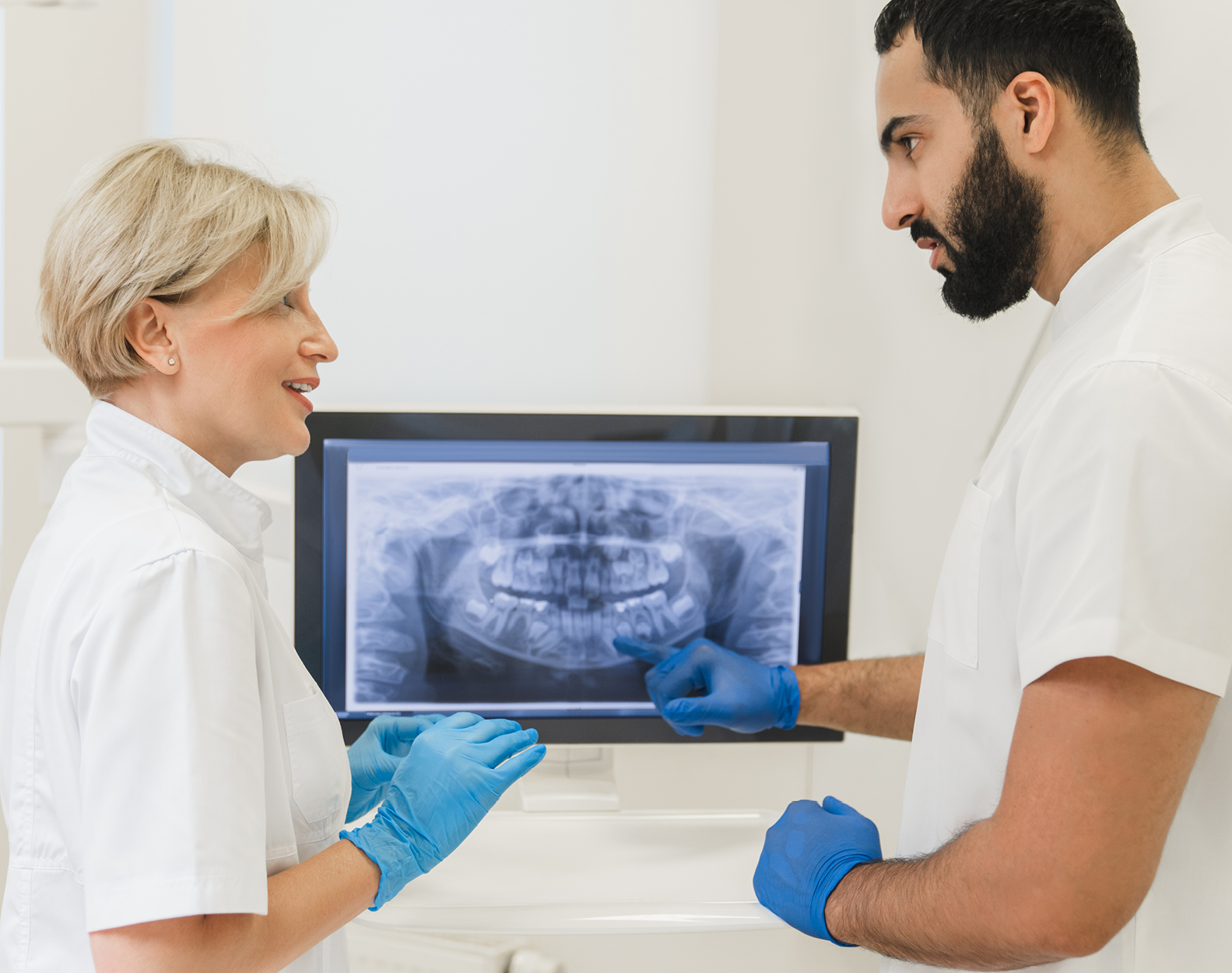
They perform routine teeth restorations and uncomplicated extractions and provide post extraction oral care instructions. Referring patients to other dental professionals for care beyond the scope of the dental therapist is also their responsibility. They also in general, provide oral health promotion activities. Dental therapists supervise dental assistants in their health care functions.
Average Hourly
$35.18
Range Hourly
$24.79-$46.00
Average Yearly
$68,601.00
Range Yearly
$48,340.50 -$89,700.00
Dental hygienists and dental therapists (3222)
Dental therapist; Licensed dental therapist; Registered dental therapist
Dental therapists are required to complete a two- to three- year college diploma from an approved dental institution program. Licensure is required for dental therapists in Saskatchewan, the Yukon, the Northwest Territories and Nunavut
Low
The employment outlook is undetermined for most provinces. More information is available here
Advancement depends on educational background and experience. Teaching, research, and administrative positions require academic qualifications at the bachelor’s degree level or beyond. They may work in private dental offices, independent dental hygiene clinics, institutions (such as hospitals, continuing care centres, correctional facilities), community health, home care and other outreach programs, the armed forces, government or regulatory bodies, research or consulting companies, dental insurance or supply companies, post-secondary schools.
0 - 3 years
Most dental therapists in Canada completed a formal education program at the National School of Dental Therapy in Prince Albert, Saskatchewan. This program lost its federal funding in 2011 and has since been discontinued. However, the program is going to be relaunched for soon in Saskatchewan.
Learn more
- General learning ability to provide dental hygiene treatment and instruct patients in care of the teeth and mouth
- Verbal ability to provide information on oral hygiene and disease prevention; may supervise dental assistants in their health care functions
- Methodical interest in compiling information by conducting initial dental assessments and taking and developing X-rays; may perform restorative and orthodontic procedures under the direction of dentists
Objective interest in precision working with dental equipment to take dental impressions, to clean and stimulate the gums to prevent gum disease, to remove stains and deposits from teeth to prevent tooth and root decay, and to apply fluoride treatments
- Social interest in instructing patients regarding oral hygiene procedures; and in consulting with dentists on patient care
Dental therapists are unique members of allied oral health care workers in Canada. Unlike, for instance, dental hygienists and assistants, dental therapists may be employed by federal or provincial governments to provide oral health care services in rural and remote communities. These oral health professionals, however, are still registered and regulated by the provincial regulatory authorities in certain jurisdictions, such as British Columbia.
Dental therapists are primary health care professionals who are trained to perform basic clinical and dental treatment and preventative services within a variety of practice settings. As members of a multidisciplinary health team, dental therapists may provide restorative dental treatment services, as well as perform disease prevention and oral health promotion.
At present there are about 300 dental therapists practising in Canada; most practise in Saskatchewan; some positions exist in the three northern territories, and less than 50 dental therapists are distributed throughout the rest of Canada with the exception of Ontario and Quebec. In some provinces dental therapists are directly employed by Health Canada or by one of the territorial governments and trained to provide oral health services to Inuit and First Nations people in rural and remote communities. In some provinces, like Saskatchewan and Manitoba, dental therapists may also be privately employed as part of dental practices.
Learn more
private dental offices
independent dental hygiene clinics
institutions (such as hospitals, continuing care centres, correctional facilities)
community health, home care and other outreach programs
the armed forces
government or regulatory bodies
research or consulting companies
dental insurance or supply companies
post-secondary schools
One needs to complete a dental therapist program from an accredited institute. However, the admission might be very competitive. In that case, one may start with completing and having some experience as a dental assistant.